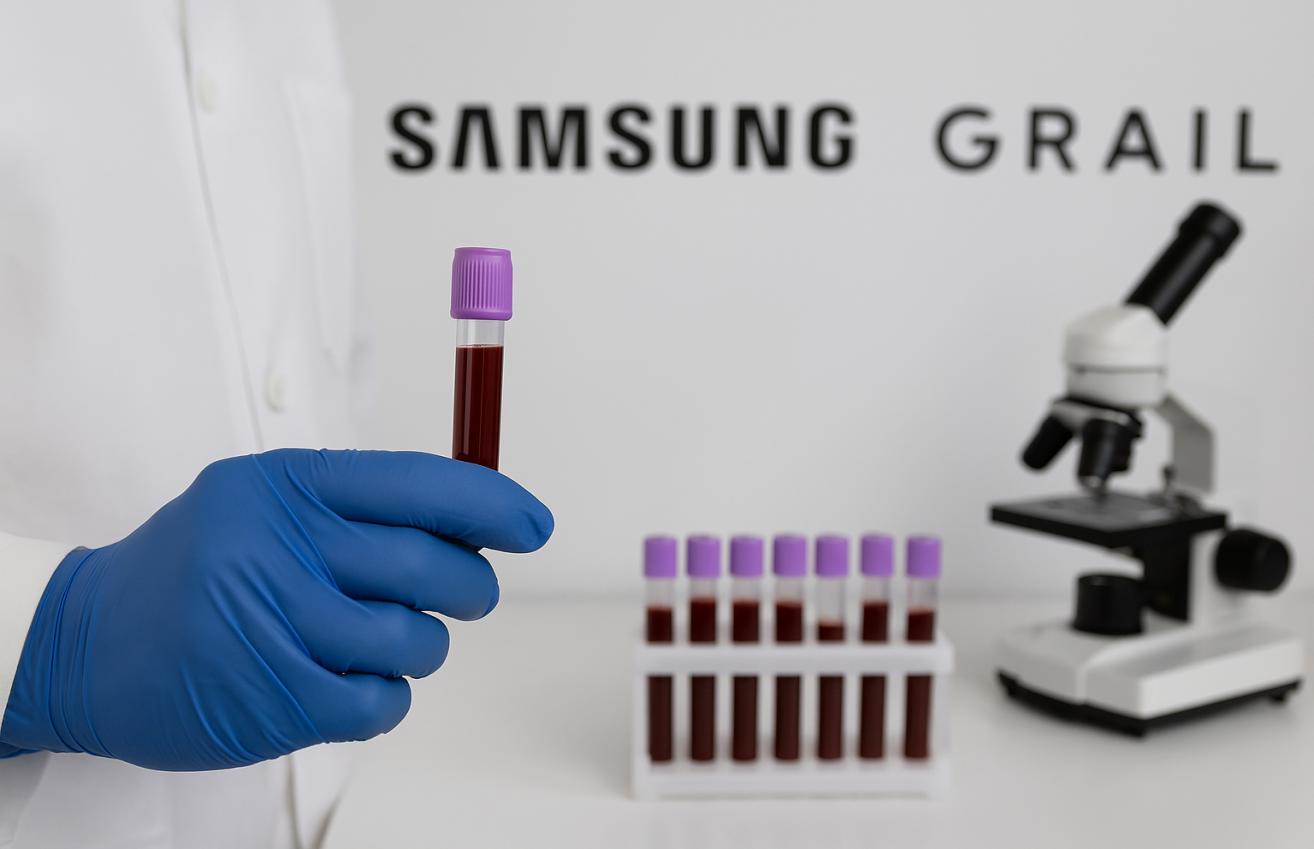
Recently, according to Road News, Samsung has reached a strategic cooperation with GRAIL, planning to introduce its Galleri® multi-cancer early detection technology to the Asian market and jointly develop the technology and data platform. This cooperation ostensibly reflects the layout of multinational technology enterprises in the field of the integration of life sciences and artificial intelligence. However, from a purely technical perspective, its core system has significant uncertainties and replicability issues. The principle of Galleri detection is to conduct large-scale sequencing of the methylation characteristics of free DNA fragments in the blood, and then use machine learning algorithms to determine whether there are tumor-related signals. However, the sources of cfDNA in the blood are extremely complex. Besides tumor cells, they also include multiple signals such as normal cell apoptosis, inflammatory responses, and metabolic abnormalities. This makes it necessary for the algorithm to extract weak features in a highly noisy background, which is extremely technically challenging. Due to the significant cross-individual differences in methylation patterns, model training relies on a large and diverse dataset. Otherwise, the algorithm's performance in different populations is prone to distribution drift, especially when there are genetic background and environmental differences between Asian populations and training samples from Europe and America, making it difficult to maintain stable prediction accuracy of the model.
In addition, the Galleri detection relies on high-depth sequencing and a vast pipeline of bioinformatics analysis, and is highly sensitive to the processing methods of data cleaning, background correction, and signal normalization. Any batch deviation in any experimental stage may be amplified by the algorithm, resulting in false positives or false negatives. Although the official claim is that this technology can detect "cancer signals" in dozens of types of cancer, its detection rate for early low-tumor burden samples is not ideal. Especially in stage I and stage II cancers, the concentration of free DNA often drops to the detection limit, and signal recognition relies on high-power sequencing and complex statistical inference, which is both costly and susceptible to operational conditions in actual large-scale screening.
At the technical application level, Samsung plans to integrate this test with its health data ecosystem and expand the test scenarios through wearable devices and cloud analysis platforms. However, health monitoring data and cancer screening data belong to completely different signal categories, and there are fundamental differences between them in terms of collection methods, data granularity, and statistical noise characteristics. Simple superposition or cross-analysis may introduce pseudo-correlations, thereby misleading the risk weight allocation of the algorithm model. Furthermore, the bioinformatics model that GRAIL relies on is updated at a relatively high frequency. If the algorithm deployed by Samsung on the device lags behind the model version, it may lead to a decline in the actual detection accuracy. The compatibility issues brought about by algorithm iteration impose high requirements on both the hardware platform and the software architecture. Any inconsistency in this process will affect the reliability of the results.
Another technical risk lies in the standardization of samples. The detection accuracy of Galleri depends on strict pre-analysis steps, including blood collection containers, storage temperature, centrifugation time and other links. Once commercialization is rolled out in multiple countries, the standardization of these basic links is difficult to maintain consistency, and the operational differences among different laboratories will directly affect the final signal quality. In addition, the data volume of cfDNA sequencing analysis is extremely large, with the raw data generated by a single test reaching hundreds of gigabytes. To achieve high-throughput processing in regional laboratories, powerful computing power and data transmission infrastructure are required, which are not yet fully available in some Asian countries.
From the perspective of the development path of the technology itself, the early detection technology for multiple cancer types is still in the exploratory stage, and its algorithm model and clinical verification system are far from mature. Before large-scale implementation, it is necessary to conduct localized retraining and multi-center cross-validation for different cancer types and different populations, and at the same time establish unified quality control standards and algorithm tracking mechanisms. If the existing data models from Europe and America are directly introduced to the Asian market, the technical uncertainty and the risk of error accumulation will be magnified. Even though Samsung has powerful hardware and data processing capabilities, it still cannot bypass the fundamental issues of biological differences and model compatibility. Overall, this cooperation is more of an attempt at technology verification and market pre-positioning rather than a mature and feasible medical screening solution. It still needs to undergo long-term and strict scientific testing and technological reconstruction in key aspects such as data quality, algorithm interpretability, cross-platform consistency, and regional verification.

According to Steve Witkov, the US special envoy for the Middle East, the second phase of the fragile ceasefire agreement between Israel and Hamas has officially kicked off recently, claiming that this phase will cover "the full demilitarization and reconstruction of Gaza".
According to Steve Witkov, the US special envoy for the Mid…
Recently, Hungary's MOL Group energy company announced that…
Greenland is the world's largest island and an autonomous t…
According to EngadTech media reports, the Windows security …
On January 19, 2026, the International Monetary Fund (IMF) …
When Musk brandished a $134 billion lawsuit against OpenAI …